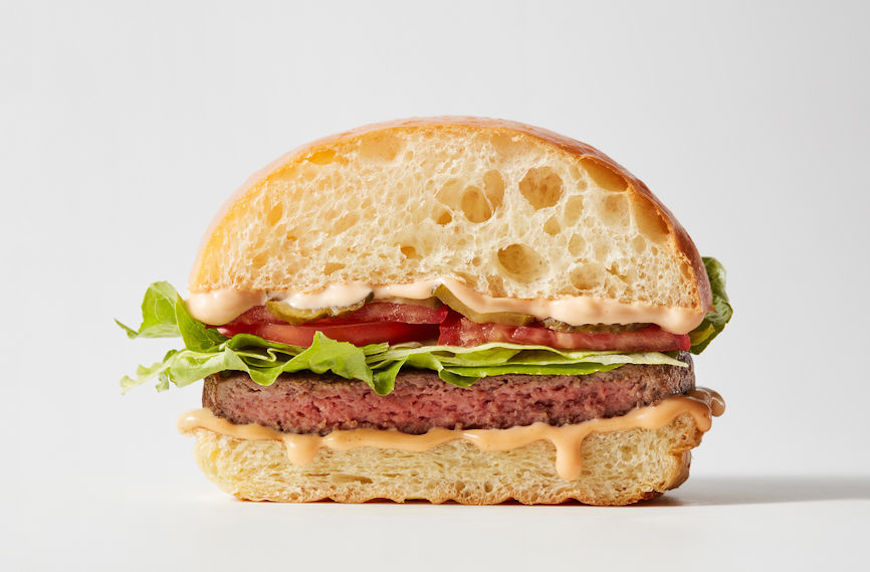
September 21, 2019 at 08:00PM by CWC
Not to brag, but we totally predicted 2019 would be the year of alt-meats. Not only do I live within spitting’s distance of innumerable joints slinging Beyond and Impossible Burgers here in vegan-friendly Los Angeles, but I have also spotted them on multiple menus in my Texas hometown, where “meat-free” typically registers as a slur. Alt-meat’s fast becoming a staple on menus at Burger King, Dunkin’ Donuts, White Castle, Carl’s Jr., and Subway, which signals a mainstreaming of the trend beyond any quinoa-eating old-school vegan’s wildest dreams.
However, just because they’re plant-based doesn’t mean they automatically deserve a place at every meal. “We know that real burgers are not a health food, and these fake burgers are not meant to be a health food,” cautions Dana Hunnes, PhD, MPH, RD, senior dietitian at UCLA Medical Center. “They are meant to be a direct substitute for a meat burger that doesn’t harm any animals and reduces harm to the environment.”
Still, she posits, they are technically better in some ways than a beef burger from a health perspective. Despite being processed, “they’re are not nearly as likely to be potential carcinogens since they are plant-based,” she says, referring to the scientifically-established link between red meat and cancer risk.
Nutrition science journalist Max Lugavere takes a somewhat contrary view. “Every ingredient in these fake meat burgers has already undergone intensive processing on their own, often using heat and harsh chemical solvents, which then come together to achieve a new level of processing—combined to create what scientists refer to as being “ultra” processed,” he says. The standard American diet already gets 60 percent of its calories from ultra-processed foods, he says, which help drive obesity and poor health. In other words, many of us already eat too many processed foods, and a Whopper is still a Whopper whether it’s made from beef or not.
“These products are not a ‘health’ food…I would not eat them on a daily basis, and might suggest limiting them to one to two per week max.” —Dana Hunnes, PhD, MPH, RD
When it comes to the specific ingredients included in the two alt-meat patties, the two further disagree. Hunnes says none ring any alarm bells for her, though she does admit that the Beyond Burger has a slightly cleaner list than does the Impossible (which uses soy and GMOs, two controversial ingredients in the wellness world). Lugavere, on the other hand, has concerns. “The Impossible and Beyond burgers are both formed using seed oils like canola oil which are highly processed,” he says, and through processing can contain trans fats. (This position on canola oil is controversial among other health experts).
ADVERTISEMENT
ADVERTISEMENTKate Spade Autumn/Winter Sale |
From a nutrient standpoint, Hunnes tells me that all three options—Beyond Burgers, Impossible Burgers, and beef burgers—have near equivalent amounts of protein and saturated fats, and that while the fake meats have more sodium, their contents are, again, not a known carcinogen like beef. Yet despite the popularity of the keto diet and high-fat eating plans, saturated fats in excess are linked to serious cardiovascular issues like heart disease and stroke, regardless of whether it’s from meat or a plant-based burger.
Lugavere, however, asserts that alt-meats can’t hold a candle to grass-fed beef in terms of nutrient content. “In just a small amount of real beef, you are getting a very bioavailable source of protein, choline, vitamin E, pre-formed omega-3 fats like EPA and DHA, creatine which is important for brain energy metabolism, zinc, iron, and vitamin B12,” he says. Meanwhile, he says the alt-meat burgers only have nutrients that are added back in from synthetic sources.
Hunnes concedes this point, but she also isn’t arguing that the fake burgers are healthier than the real ones, but rather than neither is a health super star and thus should not be consumed in excess. “These [faux burgers] are not a ‘health’ food, they are more of an environmental and animal-welfare food,” she says. “I would not eat them on a daily basis, and might suggest limiting them to one to two per week max.”
Luckily, I’m more a once-a-month kinda gal and to Hunnes’ point, I don’t usually look to my burger-centric meals—whether they’re beef or Beyond—for my daily dose of vital nutrients. If that’s what you’re going for, you might be better served by skipping the burger altogether in favor of a well-rounded plate featuring whole grains, vegetables, and a lean protein (just like Simone Biles).
Burger subs aren’t your only option for reducing your meat consumption without adopting a totally novel diet. And with an eye toward Thanksgiving, why not test out this festive turkey dupe?
Author Erin Bunch | Well and Good
Selected by CWC
ADVERTISEMENT
ADVERTISEMENTUp to 30% off Gift Sets |






